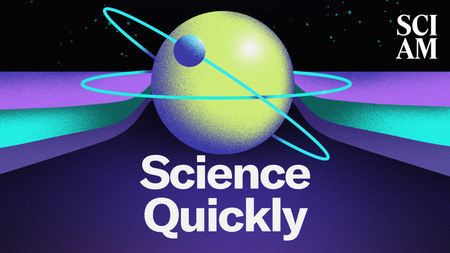
AI Takes on Conspiracies; Massachusetts Tackles Trash
AI fights conspiracy theories, Massachusetts leads the way on waste reduction, and more in this week’s science news roundup
Fonda Mwangi is a multimedia editor at Scientific American. She previously worked as an audio producer at Axios, The Recount and WTOP News. She has a master’s degree in journalism and public affairs from American University in Washington, D.C.

AI Takes on Conspiracies; Massachusetts Tackles Trash
AI fights conspiracy theories, Massachusetts leads the way on waste reduction, and more in this week’s science news roundup
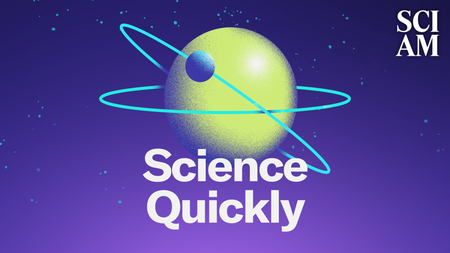
See the Skies Differently with Astronaut and Photographer Matthew Dominick
NASA flight engineer Matthew Dominick’s astrophotography helps us see our world—from space
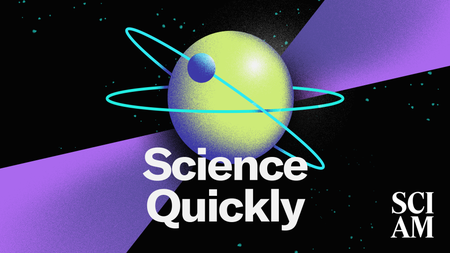
How Forensic Breakthroughs Are Still Helping Identify 9/11 Victims Today
Forensic scientists are still working to identify victims of the 9/11 attacks using advancements in technology and techniques developed over the past two decades.

Jellyfish Clones Swarm British Columbian Lakes, and Measles Cases Spike in Oregon
This week’s news roundup: Jellyfish clones are multiplying in British Columbia’s lakes, measles cases are on the rise in Oregon, and a new study finds cell phones aren’t linked to brain cancer.

Balancing Long-Term Caregiving with Personal Well-Being
Caring for aging loved ones brings its own set of emotional and physical hurdles. Experts offer guidance on finding support.
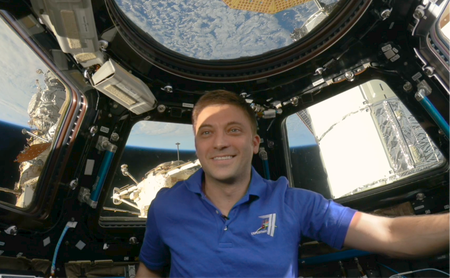
Watch the First-Ever Interview from the ISS Cupola
NASA astronaut Matthew Dominick speaks with Science Quickly host Rachel Feltman about how he captures jaw-dropping images from space

Discrimination Could Be Making People of Color Age Faster
Understanding how racism affects aging and the timing of menopause could lead to better screening and preventive care.

Navigating the Struggles and Joys of Caring for Aging Loved Ones
Personal stories and research reveal the challenges of family caregiving.

The Pitfalls of Houseplant Collection
A curator at the New York Botanical Garden explains what we can learn about the past and the present from houseplant trends.

NASA’s Perseverance Rover Ascends, Ozempic Is Linked to Depression, and Mpox Cases Spread Rapidly
We cover Mars mission updates, a new brain implant that shows promise for Parkinson’s, the latest on the mpox outbreak, and more in this week’s new roundup.

What a Linguist Hears when Kamala Harris Speaks
A sociophonetician explains presidential candidate Kamala Harris’s intonational patterns and the way that the properties of candidates’ speech influences how they are perceived.

‘Dark Oxygen’ from Seafloor Deposits Perplexes Researchers
Polymetallic blobs are producing “dark oxygen” from the depths of the ocean—and no one knows exactly how.

James Cameron’s OceanXplorers Shows Scientists at Work
James Cameron takes us behind the scenes and beneath the waves in a discussion of the new National Geographic show OceanXplorers on today’s episode of Science Quickly.

A Survey of 16,000 Changes the Story of Prostates and Pleasure
Here’s what the team at Science Vs learned about prostates and pleasure in its quest to understand the “male G-spot.”

A Close Encounter with SpaceX Debris Teaches an Astronomer about Space Junk
The space junk polluting low-Earth orbit sometimes makes its way to Earth. Here’s how one astronomer responded when SpaceX debris fell on a nearby farm.

Olympic Athletes Swim the Murky Seine, and Astronauts Are Stuck on the Space Station
We cover the science stories of the Olympics, concerns about artificial sweeteners and a new theory of how the pyramids were built in this week’s news roundup.

Extreme Conditions and Ethical Dilemmas: The Archaeology of Human Sacrifice
A mountaintop burial site offers a glimpse into Inka life—but raises ethical questions about unearthing ancient human remains.

Healthy Coral Reefs Sound like a Symphony
Coral reef soundscapes could help researchers assess their overall health.
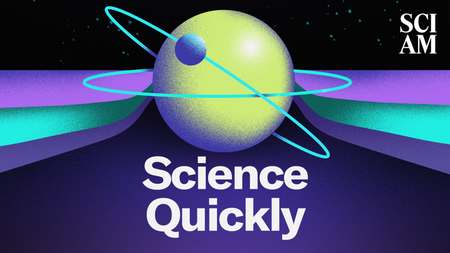
Scientists Sound Alarms on New Surge in Cancers, and a Private Spacewalk Is Pushed Back
A new blood test for cancer, helpful cat parasites and a new kind of wood are featured in this week’s news roundup.

The Long History of Sex Testing in the Olympics and Other Elite Sports
Here’s the long history of sex testing in elite sports like the Olympics and where the science really stands.

Heat Records, Unexpected Downpours and Extreme Animals
We cover extreme weather, cocaine sharks and komodo dragons with iron-tipped teeth in this week’s news roundup.

These Advanced Meditation Practices Unlock New Understandings of Consciousness
Advanced meditation is changing how we think about consciousness. Hear neuroscience researcher Matthew Sacchet explain his journey to studying what happens to the brain during a deeper engagement with meditation.

Cleaning Up Paris’s Poop River for the Olympics
The Seine will be the stage for the Paris 2024 Olympics’ Opening Ceremony—and for its marathon swimming events. But this urban waterway is challenging to keep clean.

Name a Quasi-Moon with Radiolab
Radiolab host Latif Nasser found and named a mysterious quasi-moon of Venus. Now you can help name one of Earth’s quasi-moons.